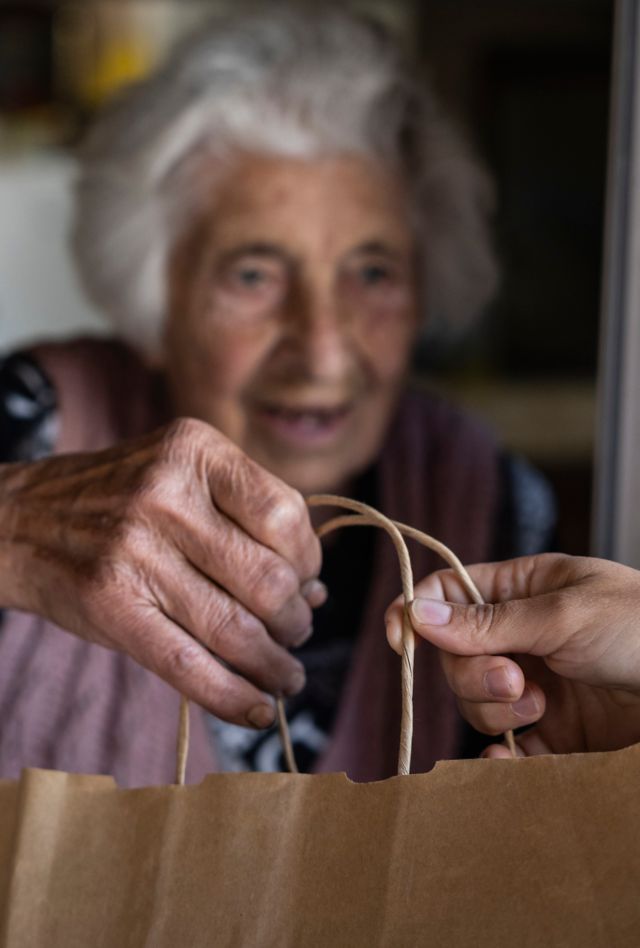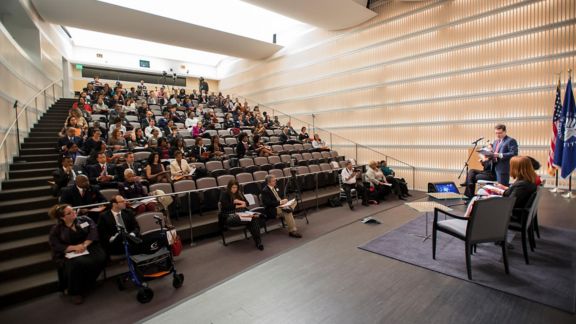Meals on Wheels COVID-19 Strategic Research

NORC at the University of Chicago conducted the COVID-19 Strategic Research study on behalf of Meals on Wheels America. The study explored how COVID-19 affected older adults, their perceptions of and experiences with Meals on Wheels, anticipated changes in behaviors as the pandemic evolved, and developed recommendations for improving Meals on Wheels services.
To assess these topics and answer the project’s research questions, NORC conducted two data collection activities with adults aged 60 and older:
- a nationally representative survey with 1,535 respondents
- 24 in-depth interviews
The survey used AmeriSpeak®, NORC’s probability-based panel designed to be representative of the U.S. household population. NORC drew a nationally representative sample of adults aged 60 and older from the AmeriSpeak Panel, with oversampling subgroups of interest to Meals on Wheels America, such as racial and ethnic minority groups, veterans, and lower-income older adults. For the in-depth interviews, NORC collaborated with four local Meals on Wheels organizations to recruit 15 Meals on Wheels users and identified nine older adults who do not use Meals on Wheels through the survey.
Our study found that the COVID-19 pandemic affected many aspects of older adults’ lives and well-being. In particular, the pandemic negatively affected older adults' social lives and dramatically increased their feelings of loneliness. Impacts differed based on respondent characteristics. Among this population, food insecurity levels were similar to before the pandemic. Most older adults surveyed reported at least one unmet need during the pandemic, but the types of unmet needs varied overall and by respondent characteristics. Many respondents reported receiving help from their informal networks (i.e., a family member, friend, relative, or neighbor).
Respondents had broad general awareness and positive perceptions of Meals on Wheels. Our findings suggest a need to expand service offerings, conduct ongoing assessments to identify evolving needs and preferences, improve partnerships with other older adult-serving organizations, enhance assistance for informal support networks, and enhance support for local Meals on Wheels programs.
Related Tags
Project Leads
-
Jennifer Benz
Vice PresidentPrincipal Investigator -
Alycia Bayne
Associate DirectorSenior Staff








